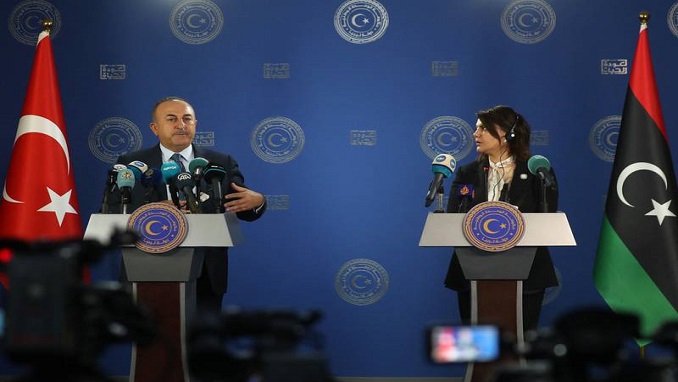Greece and Egypt voiced strong opposition on Monday to any activity in disputed areas of the eastern Mediterranean after Libya’s government signed a preliminary maritime energy exploration deal with Turkey.
The deal was also rejected by a rival administration in war-torn Libya’s east and Libya’s eastern-based Parliament, which backs the rival administration.
Greek Foreign Minister Nikos Dendias and his Egypt’s counterpart Sameh Shoukry, which discussed the developments in Libya over the phone, stressed that the outgoing ‘government of unity’ in Tripoli does not have the authority to conclude international agreements or memoranda of understanding.
Challenging the legitimacy of Tripoli-based the Libyan Government of National Unity under Abdulhamid Al Dbeibah, to sign the said MoU, Dendias stressed that Greece has sovereign rights in the area that it intends to defend with all legal means.
He cited a 2020 deal between Egypt and Greece, designating their own exclusive economic zone in the eastern Mediterranean, that effectively nullifies the 2019 accord between Turkey and Libya.
The Greek foreign ministry also announced a possible reaction at a bilateral level and in the European Union and NATO.
Turkish Foreign Minister Mevlut Cavusoglu and Najla Mangoush, his counterpart in the Tripoli government, noted that the hydrocarbons deal, which aims to establish cooperation between Turkish and Libyan companies in exploration, is one of several economic agreements intended to benefit both countries.
Rejecting any misunderstanding regarding the maritime jurisdiction area, Cavusoglu underscored that this is a valid agreement signed between two sovereign countries.
Turkey has previously, in 2019, angered other eastern Mediterranean states, as well as regional and international countries, by agreeing on an exclusive economic zone with the Tripoli government.
It is still unclear if the projects Cavusoglu and Mangoush announced will include exploration in that zone.



